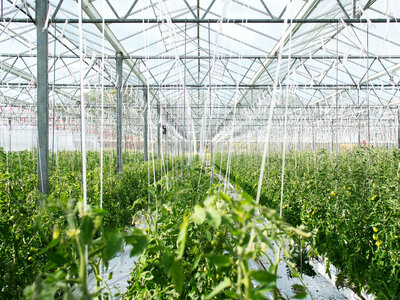In the world of modern gardening and agriculture, innovation plays a key role in enhancing productivity and sustainability. One such innovation is the use of cocopeat grow bags. These versatile and eco-friendly growing mediums have gained popularity among gardeners, farmers, and horticulturists. But what exactly are cocopeat grow bags, how are they made, and why should you consider using them? Let’s explore.
What Are Cocopeat Grow Bags?
Cocopeat, also known as coir pith, is a natural byproduct derived from the husk of coconuts. It is an excellent growing medium because of its superb water retention, aeration, and nutrient-holding capacity. Grow bags made from cocopeat are essentially containers filled with this organic material, providing an ideal environment for plant roots to thrive.
How Are Cocopeat Grow Bags Made?
The production of cocopeat grow bags involves several steps:
- Harvesting and Processing: The process begins with the harvesting of coconut husks. These husks are then soaked in water to loosen the coir fibers. Once softened, the fibers are separated from the husk and collected.
- Drying and Screening: The collected coir pith is dried to remove excess moisture. After drying, it is screened to remove any large particles or impurities, ensuring a fine, consistent texture.
- Compression: The processed cocopeat is then compressed into various shapes and sizes to form grow bags. These compressed blocks expand when watered, providing a ready-to-use growing medium.
- Packaging: Finally, the cocopeat grow bags are packaged and prepared for distribution, ready to be delivered to gardeners and farmers.
Why Do We Need Cocopeat Grow Bags?
Cocopeat grow bags offer numerous benefits that make them a valuable addition to any gardening or farming setup:
- Water Retention: Cocopeat can retain up to 10 times its weight in water, ensuring that plants receive consistent moisture. This reduces the frequency of watering and helps in water conservation.
- Aeration: The structure of cocopeat provides excellent aeration to plant roots, promoting healthy root development and preventing root rot.
- Nutrient Retention: Cocopeat has a high cation exchange capacity, which means it can hold onto essential nutrients and release them to plants as needed.
- Sustainability: Using cocopeat helps reduce waste from the coconut industry and offers an eco-friendly alternative to traditional soil-based growing mediums.
- Versatility: Cocopeat grow bags are suitable for a wide range of plants, from vegetables and herbs to flowers and ornamental plants. They are ideal for both indoor and outdoor gardening.
- Pest Resistance: Cocopeat is naturally resistant to many pests and diseases, reducing the need for chemical treatments.
Conclusion
Incorporating cocopeat grow bags into your gardening or farming practices can lead to healthier plants, better yields, and a more sustainable approach to growing. If you’re looking for high-quality cocopeat grow bags, look no further than Ventura Agro in Sri Lanka. With their commitment to quality and sustainability, Ventura Agro provides top-notch cocopeat grow bags that will help your plants flourish. Embrace the future of gardening with cocopeat grow bags from Ventura Agro and experience the difference they can make in your green spaces.
For more information on our products and how to get started with cocopeat grow bags, visit Ventura Agro’s website or contact us today. Happy gardening!


